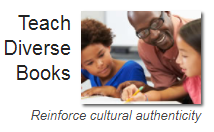Registration and FAQs for the “Connect and Create Workshops for Public and School Librarians”
The Wisconsin Department of Public Instruction is hosting "Connect and Create Workshops for Public and School Librarians" at Hotel Marshfield on Monday, May 7 and Tuesday, May 8, 2018. The theme for the Monday, May 7th workshop is, “Students as Creators: Connecting through STEM, Maker, Coding, and Hands-On Learning.” The theme for the Tuesday, May 8th workshop is, “Students as Community Members: Connecting through Books, Collections, and Perspective Sharing.”
Wisconsin public library and public school library staff are encouraged to apply for a spot in one of the workshops. Following the workshops, grant applications will be accepted for joint school and public library projects related to one of the workshop topics. The workshops and grant are funded in part with a grant from the Institute of Museum and Library Services which administers the Library Services and Technology Act (LSTA). A descriptive PDF with additional information about the workshops, registration, and grants can be found at: https://drive.google.com/file/d/1i5aXIPp3w6ZoOc3Pb4mF4Wmn3DRzsSi6/view?usp=sharing
The remainder of this blog post answers some frequently asked questions about the workshops.
What will the workshop schedules look like?
9:00 Registration and refreshments
9:30 Welcome
10:00 Keynote
11:45 Lunch with practitioner panel
1:00 Small group challenge activities
2:00 Time for collaboration, questions, and grant proposal work
2:45 Closing
3:00 Departure
What will the “Students as Creators: Connecting through STEM, Maker, Coding, and Hands-On Learning” workshop cover?
The phrase “students as creators” reflects that idea that youth learn through building and making, with their hands and with each other. This workshop will be tailored to the needs of the attendees, and conversations and activities will emphasize concrete aspects of STEM/Maker/Coding, including instruction pertaining to gadgets and materials. Speakers will include Kevin Jarrett (keynote) and Sue Abrahamson, Rebecca Millerjohn and Teresa Voss (school and public library practitioner panel). Grant opportunities for this workshop will emphasize program development and resource curation for youth in school and public library environments.
What will the “Students as Community Members: Connecting through Books, Collections, and Perspective Sharing”?
The phrase “students as community members” reflects that idea that youth need to see themselves and others in our global community in the books that they read. This workshop will be tailored to the needs of the attendees, and conversations and activities will emphasize concrete aspects of collection development, as well as bigger topics like social justice. Speakers will include Nick Glass (keynote) and Martha Kaempffer, Rita Platt, Susan Plewa (school and public library practitioner panel). Caitlin Schaffer and Jenny Barreau will lead challenge activities using BreakoutEDU. Grant opportunities for this workshop will emphasize program development and hosting for an author/illustrator visit to school and public library environments.
How Does Registration Work?
Link for May 7 https://goo.gl/forms/bx09ERnwdqjUPZjF3
Link for May 8 https://goo.gl/forms/QAgh5pKRwf4Qunw32
Completing the registration form does not guarantee the applicant a spot in either workshop. A maximum of 50 spots are available per workshop, ideally representing an even mix of public library staff and school librarians from around the state. Colleagues who are currently collaborating OR who are interested in collaborating with school/public library counterparts are HIGHLY ENCOURAGED to apply. Both participants must register individually.
Registration is open from March 5 through March 30, 2018. Following the registration window, selected applicants will be offered a spot in a workshop and be required to accept/decline during the week of April 2, 2018. All applicants will be notified of their registration status via email during the week of April 9, 2018. A waiting list will be maintained in case of a cancellation.
What About the Grants?
Following the workshops, attendees who complete the workshop training will be eligible to apply for a joint school and public library project grant based on the workshop topic. Projects must have a dual public library and school library audience; therefore, grant applications must be submitted by committed pairs, at least one of whom must have completed workshop training. Some attendees will come to the workshop as pre-matched pairs, others will come solo and use the workshop to identify fellow collaborators (who may or may not be in attendance).
Details about the grants will be shared at the workshop, along with sample application materials. Grant proposals are due Friday, June 8, 2018; recipients will be notified mid-June. Project fund encumbrance must be completed by September 30, 2018; however, project activities might take place anytime between July and December 2018.
What Are the Expectations of Collaboration?
The focus of this LSTA project is two-fold: 1) Explore the two distinct, relevant topics for libraries serving youth and 2) Collaborate with school and public library staff. Collaboration will occur as part of workshop activities on site with the idea that attendees will establish or enhance connections back in their communities.
As noted, colleagues who are currently collaborating OR who are interested in collaborating with school/public library counterparts are HIGHLY ENCOURAGED to simultaneously register for the workshop. In addition, attendees will be eligible for a grant related to the workshop. Projects must have a dual public library and school library audience; therefore, grant applications must be submitted by committed pairs, at least one of whom must have completed the workshop training. Some attendees will come to the workshop as pre-matched pairs, others will come solo and use the workshop to identify fellow collaborators who may or may not be in attendance.
Who are the workshop hosts?
Tessa Michaelson Schmidt
Public Library Consultant
Wisconsin Department of Public Instruction
tessa.schmidt@dpi.wi.gov
Monica Treptow
School Library Education Consultant
Wisconsin Department of Public Instruction
monica.treptow@dpi.wi.gov



